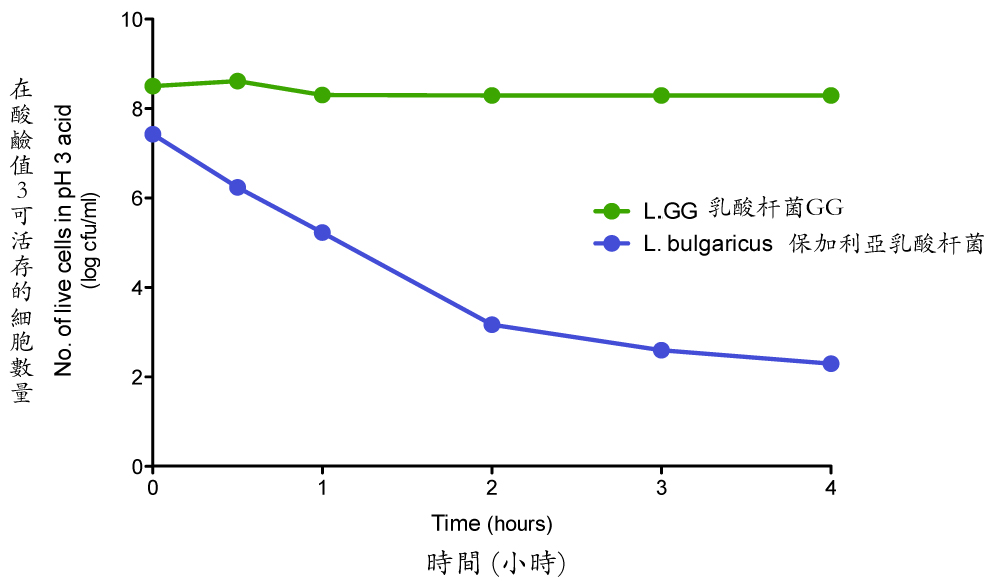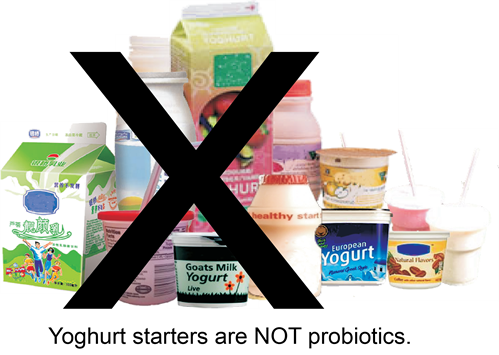| Without colonisation there is no possible health benefit. Colonisation depends on the bacteria’s ability to survive and stick onto the intestinal surface. 
Survival of Lactobacillus GG (LGG) compared to yoghurt
starter, L. bulgaricus in stomach acid. [Goldin et al. 1992]
Since yoghurt starters cannot survive to colonise the intestinal tract, yoghurt starters are NOT probiotics.  Once it passes the small intestines, the GG probiotic’s ability to tolerate low levels of oxygen ensures that it can survive in the first part of the large intestine (called the caecum) which contains oxygen. The caecum is the segment of the intestinal tract where the important, health-promoting process of fermentation of indigestible plant material and fibre is most active. Here, GG probiotic participates in this fermentation process to produce beneficial by-products called short chain fatty acids (SCFAs). SCFAs are “food” for intestinal cells, providing nutrition for their growth and repair. They also play a part in the body’s control of insulin, blood sugar and cholesterol. Does LACTOGG® pass this test? Yes. LACTOGG® survives stomach acid and intestinal bile to remain ALIVE after it is consumed. References: Goldin BR et al. Survival of Lactobacillus species (strain GG) in human gastrointestinal tract. Dig Dis Sci 1992;37:121-128 |




